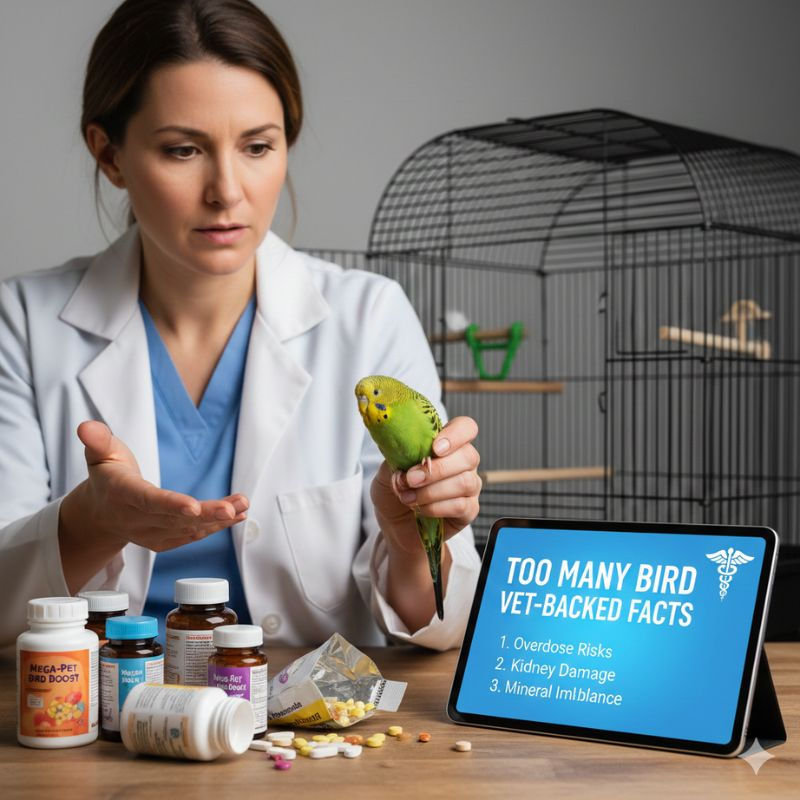The Health Benefits of Providing Quality Wild Bird Food
- petperchlove
- Feb 12, 2025
- 4 min read

Why Choosing the Best Wild Bird Food Matters
Feeding wild birds is more than just a hobby; it’s a way to support local ecosystems and ensure the health of bird populations. Providing high-quality wild bird food can significantly impact the well-being of birds, promoting strong immune systems, better reproduction, and vibrant plumage.
With the right wild bird food seed, you can attract a variety of bird species while ensuring they receive proper nutrition. But what makes up the best wild bird food, and why does quality matter? Let’s explore the benefits.
1. Boosts Energy Levels and Supports Survival
Wild birds need energy to sustain their daily activities, such as flying, nesting, and escaping predators. High-quality wild bird food packed with essential nutrients provides the fuel birds need to thrive. Seeds rich in fats and proteins, like sunflower seeds, peanuts, and suet, offer sustained energy and are crucial during colder months when food sources are scarce.
Best Wild Bird Food for Energy:
Black Oil Sunflower Seeds – High in healthy fats and oils.
Suet Cakes – Great for winter feeding, providing extra energy.
Nyjer Seeds – Small but packed with high-fat content, perfect for finches.
2. Supports Strong Feathers and Healthy Plumage
Feathers are vital for birds, aiding in flight, insulation, and protection. Poor nutrition can lead to weak or dull feathers, making birds more susceptible to environmental hazards. The best wild bird food contains vital nutrients such as omega-3 fatty acids, amino acids, and antioxidants that promote feather strength and vibrant coloration.
Best Wild Bird Food Seed for Feathers:
Safflower Seeds – Rich in protein, helping with feather growth.
Canary Seed – Supports overall plumage health.
Peanuts – Provide essential amino acids for strong feathers.
3. Enhances Immune System and Disease Resistance
Just like humans, birds need a strong immune system to fight off diseases and infections. Poor diet can lead to malnutrition, making birds more susceptible to illnesses. High-quality wild bird food that includes seeds, nuts, and dried fruits provides essential vitamins, minerals, and antioxidants that keep birds in peak health.
Best Wild Bird Food for Immunity:
Fruits (Dried Berries, Raisins, Apples) – Loaded with antioxidants.
Mealworms – High in protein and beneficial for insect-eating birds.
Millet – Contains essential vitamins that support immune function.
4. Promotes Better Reproduction and Nesting Success
Birds require high levels of nutrients during breeding season to successfully mate and raise their young. A nutrient-dense diet ensures that birds lay strong, viable eggs and that chicks develop properly.
Best Wild Bird Food for Reproduction:
Calcium-rich Crushed Eggshells – Strengthens eggshells for hatching.
Sunflower Kernels – Provide essential nutrients for nesting birds.
Insects (Mealworms, Crickets) – Offer protein necessary for chick development.
5. Encourages a Diverse Bird Population in Your Backyard
Providing premium wild bird food seed not only benefits individual birds but also attracts a wide variety of species to your backyard. When birds find a reliable, nutritious food source, they are more likely to return, contributing to biodiversity and a balanced ecosystem.
Best Wild Bird Food for a Variety of Species:
Mixed Birdseed Blends – Attracts different birds with a variety of nutrients.
Cracked Corn – Popular among doves, sparrows, and jays.
Hulled Sunflower Seeds – Appealing to cardinals, chickadees, and woodpeckers.
Tips for Providing the Best Wild Bird Food
Choose High-Quality Seeds: Avoid cheap, filler-laden mixes that contain excessive milo or wheat, which most birds do not eat.
Keep Feeders Clean: Dirty feeders can harbor mold and bacteria, leading to diseases.
Offer Fresh Water: Hydration is just as important as food.
Rotate Food Types Seasonally: Birds have different dietary needs throughout the year.
Avoid Bread and Processed Foods: These lack essential nutrients and can be harmful to birds.
Final Thoughts
Providing high-quality wild bird food is a simple yet powerful way to support bird health, encourage biodiversity, and enjoy the beauty of nature in your backyard. By offering the best wild bird food packed with essential nutrients, you help birds stay strong, vibrant, and thriving year-round.
FAQS
1. What is the best wild bird food to attract the most birds?
The best wild bird food to attract a variety of birds includes black oil sunflower seeds, peanuts, and suet. These options provide high energy and essential nutrients that birds love.
2. Can I feed wild birds bread?
No, bread lacks nutritional value and can lead to malnutrition and digestive issues in birds. It is best to stick to wild bird food seed like sunflower seeds, millet, and mealworms.
3. How often should I refill my bird feeder?
Refill bird feeders as needed, usually every 2-3 days, depending on bird activity. Always check for spoiled or moldy food and replace it immediately.
4. What foods should I avoid giving to wild birds?
Avoid salty foods, chocolate, processed snacks, and anything with artificial sweeteners. These can be toxic or provide no real benefit to birds.
5. How can I prevent squirrels from stealing bird food?
Use squirrel-proof feeders, place feeders away from trees or fences, and consider adding cayenne pepper to seed mixes (birds are not affected, but squirrels dislike it).



Comments